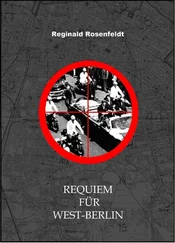Isaiah Berlin - Russian Thinkers
Здесь есть возможность читать онлайн «Isaiah Berlin - Russian Thinkers» весь текст электронной книги совершенно бесплатно (целиком полную версию без сокращений). В некоторых случаях можно слушать аудио, скачать через торрент в формате fb2 и присутствует краткое содержание. Год выпуска: 0101, Жанр: Старинная литература, на русском языке. Описание произведения, (предисловие) а так же отзывы посетителей доступны на портале библиотеки ЛибКат.
- Название:Russian Thinkers
- Автор:
- Жанр:
- Год:0101
- ISBN:нет данных
- Рейтинг книги:3 / 5. Голосов: 1
-
Избранное:Добавить в избранное
- Отзывы:
-
Ваша оценка:
- 60
- 1
- 2
- 3
- 4
- 5
Russian Thinkers: краткое содержание, описание и аннотация
Предлагаем к чтению аннотацию, описание, краткое содержание или предисловие (зависит от того, что написал сам автор книги «Russian Thinkers»). Если вы не нашли необходимую информацию о книге — напишите в комментариях, мы постараемся отыскать её.
Russian Thinkers — читать онлайн бесплатно полную книгу (весь текст) целиком
Ниже представлен текст книги, разбитый по страницам. Система сохранения места последней прочитанной страницы, позволяет с удобством читать онлайн бесплатно книгу «Russian Thinkers», без необходимости каждый раз заново искать на чём Вы остановились. Поставьте закладку, и сможете в любой момент перейти на страницу, на которой закончили чтение.
Интервал:
Закладка:
the enemy had hitherto always been on the right-monarchists,
clericals, aristocratic supporters of political or economic oligarchies,
men whose rule promoted, or was indifferent to, poverty, ignorance,
injustice and the exploitation and degradation of men. The natural
inclination of liberals has been, and still is, towards the left, the party
of generosity and humanity, towards anything that destroys barriers
between men. Even after the inevitable split they tend to be deeply
reluctant to believe that there can be real enemies on the left. They
may feel morally outraged by the resort to brutal violence by some of
their allies; they protest that such methods will distort or destroy the
common goal. The Girondins were driven into this position in 1 792;
liberals like Heine or Lamartine in 1 848; Mazzini, and a good many
socialists, of whom Louis Blanc was the most representative, were
..
297


R U S SIAN T HI N K E R S
repelled by the methods of the Paris Commune of 1 87 1 . These crises
passed. Breaches were healed. Ordinary politial warfare was
resumed. The hopes of the moderates began to revive. The desperate
dilemmas in which they found themselves could be viewed as being
due to moments of sudden aberration which could not last. But in
Russia, from the 1 86os until the revolution of 191 7, this uneasy
feeling, made more painful by periods of repression and horror, became
a chronic condition -a long, unceasing malaise of the entire enlightened
section of society. The dilemma of the liberals became insoluble, They
wished to destroy the regime which seemed to them wholly evil. They
believed in reason, secularism, the rights of the individual, freedom
of speech, of association, of opinion, the liberty of groups and races
and nations, greater social and economic equality, above all in the rule
of justice. They admired the selfless dedication, the purity of motive,
the martyrdom of those, no matter how extremist, who offered their
lives for the violent overthrow of the status quo. But they feared
that the losses entailed by terrorist or Jacobin methods might be
irreparable, and greater than any possible gains; they were horrified by the fanaticism and barbarism of the extreme left, by its contempt for the only culture that they knew, by its blind faith in what seemed to them Utopian fantasies, whether anarchist or populist or
.
Marxist.
These Russians believed in European civilisation as converts
believe in a newly acquired faith. They could not bring themselves
to contemplate, still less to sanction, the destruction of much that
seemed to them of infinite value for themselves and for all men in
the past, even the tsarist past. Caught between two armies, denounced
by both, they repeated their mild and rational words without much
genuine hope of being heard by either side. They remained obstinately
reformist and non-revolutionary. Many suffered from complex forms
of guilt: they sympathised more deeply with the goals upon their left;
but, spumed by the radials, they tended to question, like the selfcritial, open-minded human beings that they were, the validity of their own positions; they doubted, they wondered, they felt tempted,
from time to time, to jettison their enlightened principles and find
peace by conversion to a revolutionary faith, above all by submission
to the domination of the zealots. To stretch themselves upon a
comfortable bed of dogma would, after all, save them from being
plagued by their own uncertainties, from the terrible suspicion that
the simple solutions of the extreme left might, in the end, be as
7.98
FATHERS AND C H I LDREN
irrational and as repressive as the nationalism, or elitism, or mysticism
of the right. Moreover, despite all its shortcomings the left still seemed
to them to stand for a more human faith than the frozen, bureaucratic,
heartless right, if only because it was always better to be with the
persecuted than with the persecutors. But there was one conviction
which they never abandoned : they knew that evil means destroyed
good ends. They knew that to extinguish existing liberties, civilised
habits, rational behaviour, to abolish them today, in the belief that,
like a phoenix, they would arise in a purer and more glorious form
tomorrow, was to fall into a terrible snare and delusion. Herzen told
his old friend, the anarchist Bakunin, in 1 869 that to order the intellect
to stop because its fruits might be misused by the enemy, to arrest
science, invention, the progress of reason, until men were made pure
by the fires of a total revolution-until 'we are free' -was nothing but
a self-destructive fallacy. 'One cannot stop intelligence', Herzen wrote
in his last and magnificent essay, 'because the majority lacks understanding, while the minority makes evil use of it . . . Wild cries to close books, abandon science, and go to some senseless battle of
destruction-that is the most violent and harmful kind of demagoguery.
It will be followed by the eruption of the most savage passions . • . No!
Great revolutions are not achieved by the unleashing of evil passions
.
I
. .
do not believe in the seriousness of men who prefer crude force
and destruction to development and arriving at settlements • • . '1 and
then, in an insufficiently remembered phrase, 'One must open men's
eyes, not tear them out. '1 Bakunin had declared that one must first
clear the ground: then we shall see. That savoured to Herzen of the
dark ages of barbarism. In this he spoke for his entire generation in
Russia. This is what Turgenev, too, felt and wrote during the last
twenty years of his life. He declared that he was a European; western
culture was the only culture that he knew; this was the banner under
which be had marched as a young man: it was his banner still.8_ His
spokesman is Potugin in Smoit, when he says 'I am devoted to
Europe, or to be more precise to • . . civilisation . . . this word is pure
and holy, while other words, "folk", for example, or . • • yes, or
"glory", smell of blood . . .' His condemnation of political mysticism
1 'K ataromu tovarishchu', Fourth Letter, 1 869, Bllllrfltlit 111'11;,,,;;, vol.
zo, PP· 59z-3.
I ibid., P· 593·
• Letter to Herzen of zs November 1 86z.
..
299

R U S S IAN T HINKERS
and irrationalism, populist and Slavophil, conservative or anarchist,
remained absolute.
But short of this, these 'men of the 40s' were less sure: to support
the left in its excesses went against the civilised grain; but to go against
it, or even to remain indifferent to its fate, to abandon it to the forces
of reaction, seemed even more unthinkable. The moderates hoped,
against all evidence, that the ferocious anti-intellectualism, which,
liberals in Russia told Turgenev, was spreading like an infectious
disease among the young, the contempt for painting, music, books,
the mounting political terrorism, . were passing excesses due to immaturity, lack of education; they were results of a long frustration; they would disappear once the pressures that had generated them
were removed. Consequently they explained away the violent language
Читать дальшеИнтервал:
Закладка:
Похожие книги на «Russian Thinkers»
Представляем Вашему вниманию похожие книги на «Russian Thinkers» списком для выбора. Мы отобрали схожую по названию и смыслу литературу в надежде предоставить читателям больше вариантов отыскать новые, интересные, ещё непрочитанные произведения.
Обсуждение, отзывы о книге «Russian Thinkers» и просто собственные мнения читателей. Оставьте ваши комментарии, напишите, что Вы думаете о произведении, его смысле или главных героях. Укажите что конкретно понравилось, а что нет, и почему Вы так считаете.










